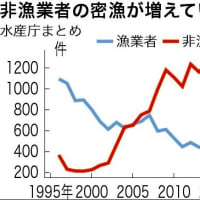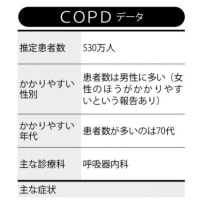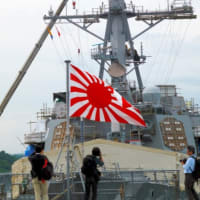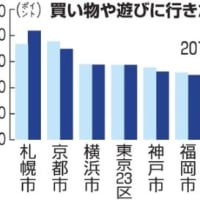思いつきを語るだけで何もできないカンナオトに対して、Financial Timesが「日本の原発漂流を終わらせよ」という社説を書いて批判しています。
**********
July 19, 2011 11:28 pm
Ending Japan’s nuclear drift
As it struggles to resolve the worst nuclear crisis in a quarter of a century, Japan faces hard policy choices that will have far-reaching implications for the world’s third- largest economy. In the longer term, it must decide what role atomic energy should play in powering an archipelago that lacks oil, coal and gas reserves, and is worryingly seismically active. More immediately, it must either bring many of the nation’s currently idled reactors back online or find ways to minimise the economic damage that could be caused by resulting capacity shortfalls.
Unfortunately, the Democratic party-led government has failed to address either issue convincingly. After weeks of frantic efforts to stave off disaster at the crippled Fukushima Daiichi power station, Naoto Kan, the prime minister, seems unsurprisingly sceptical about the industry. But his announcement last week that Japan should aim to be a “society that can manage fine without nuclear power” does not have the unambiguous support even of his own cabinet.
Mr Kan has also botched the near-term issue of whether to restart reactors that were offline for routine checks before the March 11 earthquake and tsunami, or shut down when they struck. Well under half of Japan’s 54 reactors are currently online, no small matter in a nation where nuclear power usually accounts for nearly a third of electricity generation. But turning them back on requires the consent of local leaders.
Earlier this month, the government appeared close to gaining such backing for two reactors in Genkai, but the process is now in doubt after Mr Kan suddenly announced that even reactors previously declared safe must pass ill-defined “stress tests”. With companies in the economically crucial Greater Tokyo and western Kansai regions already being told to cut peak electricity usage by 15 per cent this summer, the administrative chaos is deeply unhelpful. Uncertainty over power supplies can only suppress new business investment and accelerate the flow of industrial capacity overseas.
This is not to say that the government should blindly bow to the nuclear lobby and sign off on all reactor restarts, while abandoning efforts to develop long-term alternatives. An embrace of renewable energy and conservation will also bring business opportunities. But Mr Kan and his colleagues urgently need to minimise uncertainty by at least agreeing among themselves what should be done – and by communicating their decisions in a more convincing way.
**********
まったくの正論でしょう。
長期的に原発依存から脱却することはよしとして、喫緊の電力不足に対して政府はどのように対処するのか。それを明らかにしないいい加減な態度をFTは強く批判しています。
「電力供給に関する不明確さは、新しい事業投資を抑圧し、事業の海外流出に加速度を高めるだけである」
その問題は、カン内閣の内閣不一致とその説明責任のなさにあると指摘しています。
「カン内閣は、いましなければならないことについて少なくとも内閣だけでも意見を統一させることで、その不明確さを早急に最小にする必要がある。そうするには、より説得力のある方法で自分たちの決断を伝えることによるしかない」
さすがに他国の新聞ですから、カンの早期辞任問題には触れていませんが、内閣の中で意見集約ができない以上、この内閣は終わりと言われているも一緒です。
この社説を読んだ多くの外国人投資家たちが日本への投資を差し控えるようになる可能性は高く、カンナオトの責任の大きさは計り知れないものがあります。
世界的に恥をさらし続けるカンナオト。これが日本の首相だと考えるだけで、悲しくなります。内閣もまとめられないようなら、すぐに辞任する。それだけで、日本への投資が増えることでしょう。
でも、自分のことしか考えないこの独裁者は、天下のFTの意見も聴くことはないのでしょうなあ。手遅れの末期カン。国民まで巻き添えにされるのはかないません。

























※コメント投稿者のブログIDはブログ作成者のみに通知されます